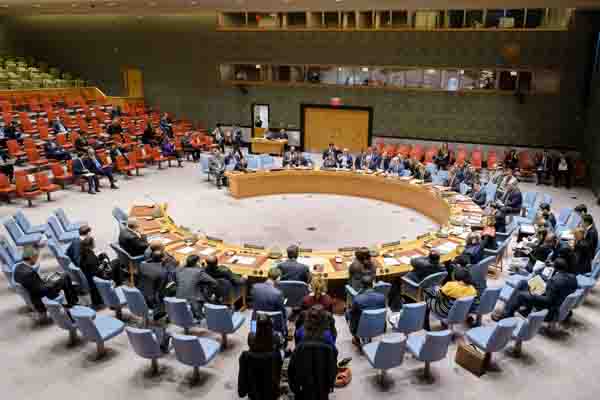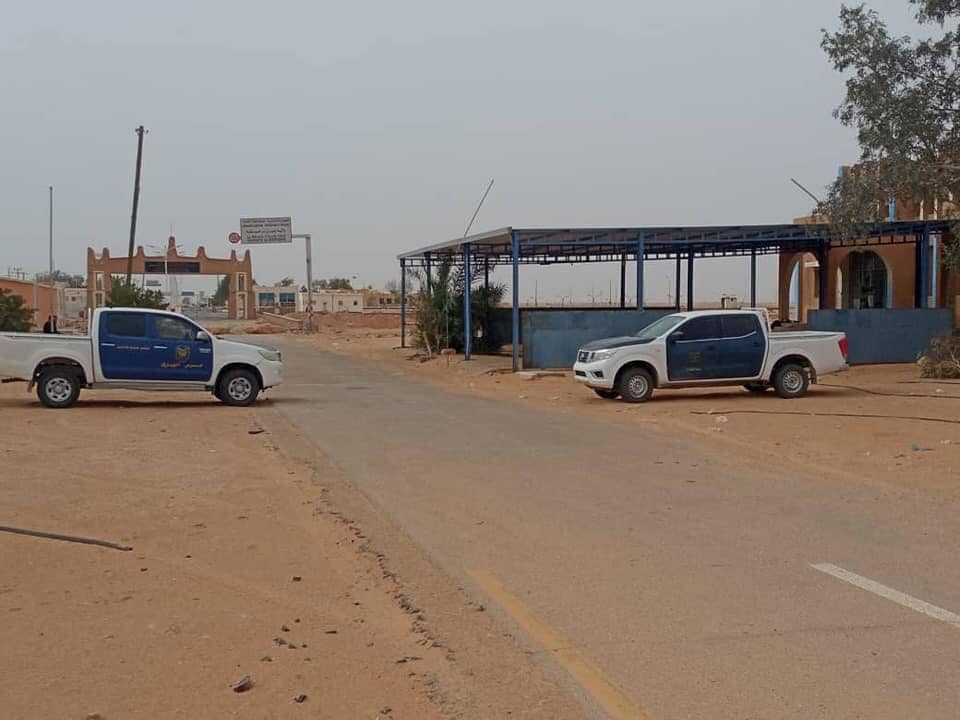The use of force is likely and justifiable in resolving Libya’s political crisis in view of the fact that current incumbent caretaker prime minister Abd Alhamid Aldabaiba has used force to remain in power.
This was the view of the former Commander of the Joint Operations Room in the Western Region, Major General Osama Juwaily, speaking yesterday evening in a live 25-minute telephone interview with the Libya Al-Ahrar satellite TV channel.
Juwaily, who hails from Zintan and had held government and military posts including Defence Minister during the National Transitional Council, was speaking after he headed a three-hour military de-escalation meeting between pro Aldabaiba and pro Bashagha militia commanders the previous day. He confirmed that social demands and militias had called for the meeting where many commanders attended, but that not all militia commanders were present.
Militia mobilisation around Tripoli
The Juwaily-militia commanders meeting came on the back of mobilisations by the two opposing militia factions around Tripoli. Juwaily’s faction had been reported to have mobilised at the disused Tripoli International Airport.
Short-term militia de-escalation agreed
Juwaily confirmed that no final resolution was reached because there were too many at the meeting, but that the very short-term measure of withdrawal of forces to reduce the likelihood of fighting was agreed. Nevertheless, he said military tension still existed in Tripoli and has existed since Bashagha had been appointed as the new prime minister by parliament (House of Representatives – HoR) in March.
Militias still talking
He confirmed, nevertheless, that the militia commanders had agreed to meet again on Saturday.
Who would be responsible if fighting broke out?
Asked by the interviewer as to who bears the responsibility if fighting did break out, Juwaily said that the person who bears the consequences of any armed clashes is the person who has been intransigent and has prevented the (peaceful) handover of power (Aldabaiba).
Aldabaiba should handover power peacefully to Bashagha
Juwaily called on Aldabaiba to hand over power to the government designated by the House of Representatives headed by Fathi Bashagha – as his tenure in office had ended. He said that was the only solution to the current crisis.
His refusal to hand over power peacefully undermines all the efforts of the past years, and the principle of peaceful transfer of power, he added.
Legality and legitimacy of the HoR
Juwaily refused to get embroiled in the matter of the legality and legitimacy of the HoR. He simply pointed out Aldabaiba and his supporting militias’ political inconsistency. He said Aldabaiba (and his militias) was happy to travel to Sirte and accept the HoR’s vote of confidence – but questioned it when the HoR replaced him.
He said Bashagha’s government has been granted confidence through the recognized steps, which is an acceptable path, like previous governments, and it must be empowered without violence.
He said he too had many reservations about the HoR and the Bashagha government, but he too must accept the acceptable process.
Negating the principle of peaceful transfer of power
Juwaily said that the use of force by the pro-Aldabaiba militias to prevent the Bashagha government from entering Tripoli and assuming its duties nullifies the principle of peaceful transfer of power. He said power must be handed over.
He stressed that he had no interest in the Bashagha government nor Bashagha himself, but rather he was defending the principle of peaceful transfer of power.
The citizens will pay the price of damage and fatalities of fighting again?
Asked if he recognized that ordinary civilian citizens will, as usual, pay the price for any fighting, Juwaily replied that he was fighting for the principle of the peaceful transfer of power, implying he was fighting for the ordinary people.
Once in Tripoli, if the Bashagha government is not accepted, we can consider other solutions
He suggested that the Bashagha government is allowed to enter Tripoli and assume its post. If it is then recognized and performs it work, so be it, but if it does not obtain recognition ‘‘we look for other solutions.’’ It is reported that Juwaily had suggested that a new third compromise government is formed but that the militia commanders had refused.
No sneaking in of another ‘‘frigate government’’
Juwaily said he objected to the Bashagha government having to force or sneak its way into Tripoli and power like the ‘‘frigate government’’ of Faiez Serraj and be labelled with it. The Serraj government, he reminded, had been sneaked into Tripoli on board a foreign frigate from Tunisia to Busitta Naval Base.
Militias had fears
Expanding further on the deliberations during the militia meeting, Juwaily said he listened to militia objections to the Bashaga government, and talk about a deal with Haftar, or fears when Bashagha assumes power he would describe them as militias and reform them as he did to some degree when he was Interior Minister. Juwaily said some of the militia commanders’ fears were genuine, but that others were simply fearful of losing power and influence.
Defying military instructions?
In response to a question about whether his movements were under instructions from the Supreme Commander, the Presidency Council, Juwaily said no. Asked, as a military man how could he justify defying instructions by going against the Defence Minister (Aldabaiba) and the Supreme Commander of the Libyan Army, the Presidency Council headed by Menfi, Juwaily said that if he adhered to military instructions, we wouldn’t have even risen against Qaddafi in 2011.










